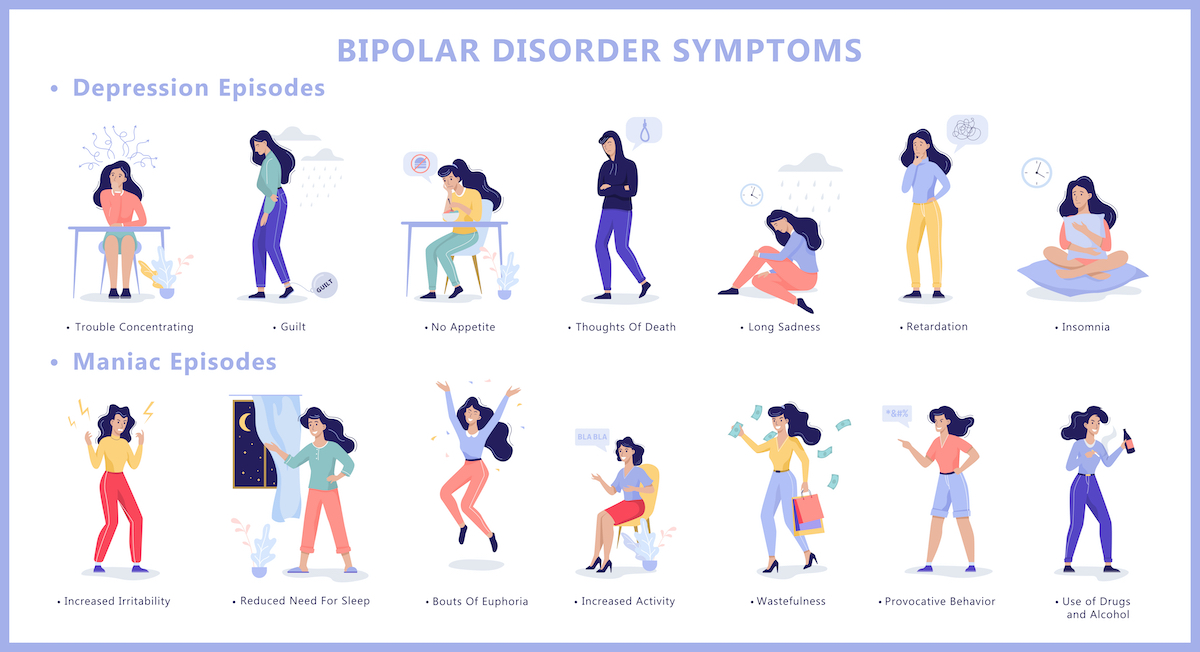We talked about (mood) episodes, but what are these? People suffering from bipolar disorder go through periods when their whole personality changes. They experience extreme emotions, changes when they sleep and are awake, and also start to behave differently. All this happens without them realizing that they have changed and this has harmful side effects for themselves and their surroundings.

Symptoms of Bipolar Disorder
As bipolar disorder patients shift from manic episodes to depressive episodes – and euthymia, they experience different symptoms in each episode. They have no symptoms in their “normal state” (euthymia) and are completely themselves. You recognize a (hypo)manic episode when you experience three or more of the following symptoms:
- Unusual upbeat/jump/wired
- Increased energy
- Increased agitation
- Exaggerated sense of well-being and self-confidence
- No need for sleep
- Unusual talkativeness
- Racing thoughts
- Easily distracted
- Bad decision-making and poor judgement
- Sudden and severe changes in mood
- Rapid speech
- Psychosis
- Increased impulsivity
Depressive Episode Symptoms
People who experience hypomanic episodes suffer from the same symptoms but are a lot milder. For example, you feel very good and got a lot done. This doesn’t sound dramatic, but friends and family may notice the mood swings and changes in activity. Often a severe depressive episode will follow. You recognize a depressive episode when you experience (one or more of) the following symptoms:
- Constantly feeling tired, sad, and or/empty.
- Sleeping way too much or way too little
- Weight fluctuations; meaning no appetite & weight loss or increased appetite & weight gain
- Loss of pleasure & interest in thing once loved
- No desire for sex
- Restlessness & irritability
- Persistent physical symptoms that don’t go away even with treatment
- Difficulty focussing, remembering, and making decisions
- Fatigue or lack of energy
- Constantly feeling guilty, hopeless, and/or worthless
- Thinking of suicide or death
Continue reading on the next page and find out if there are any treatment options available for bipolar disorder.

